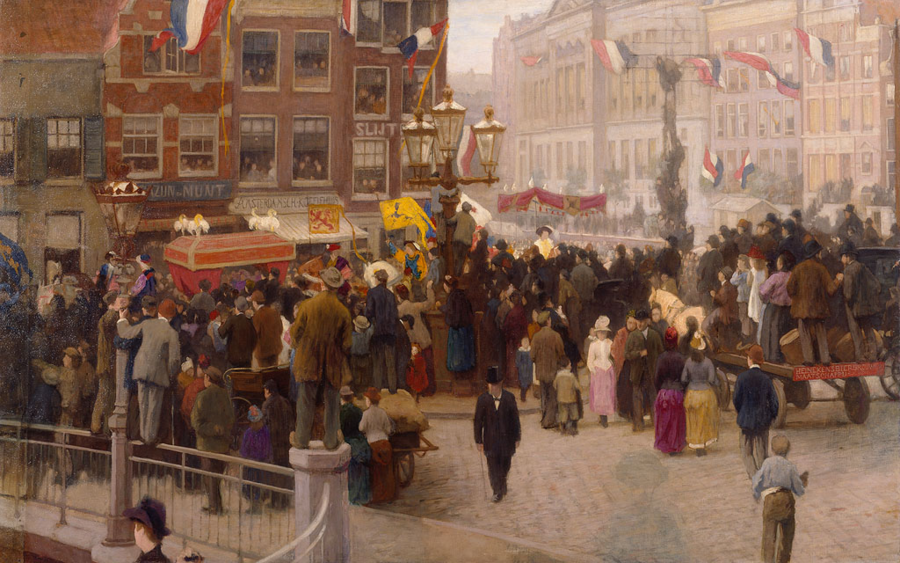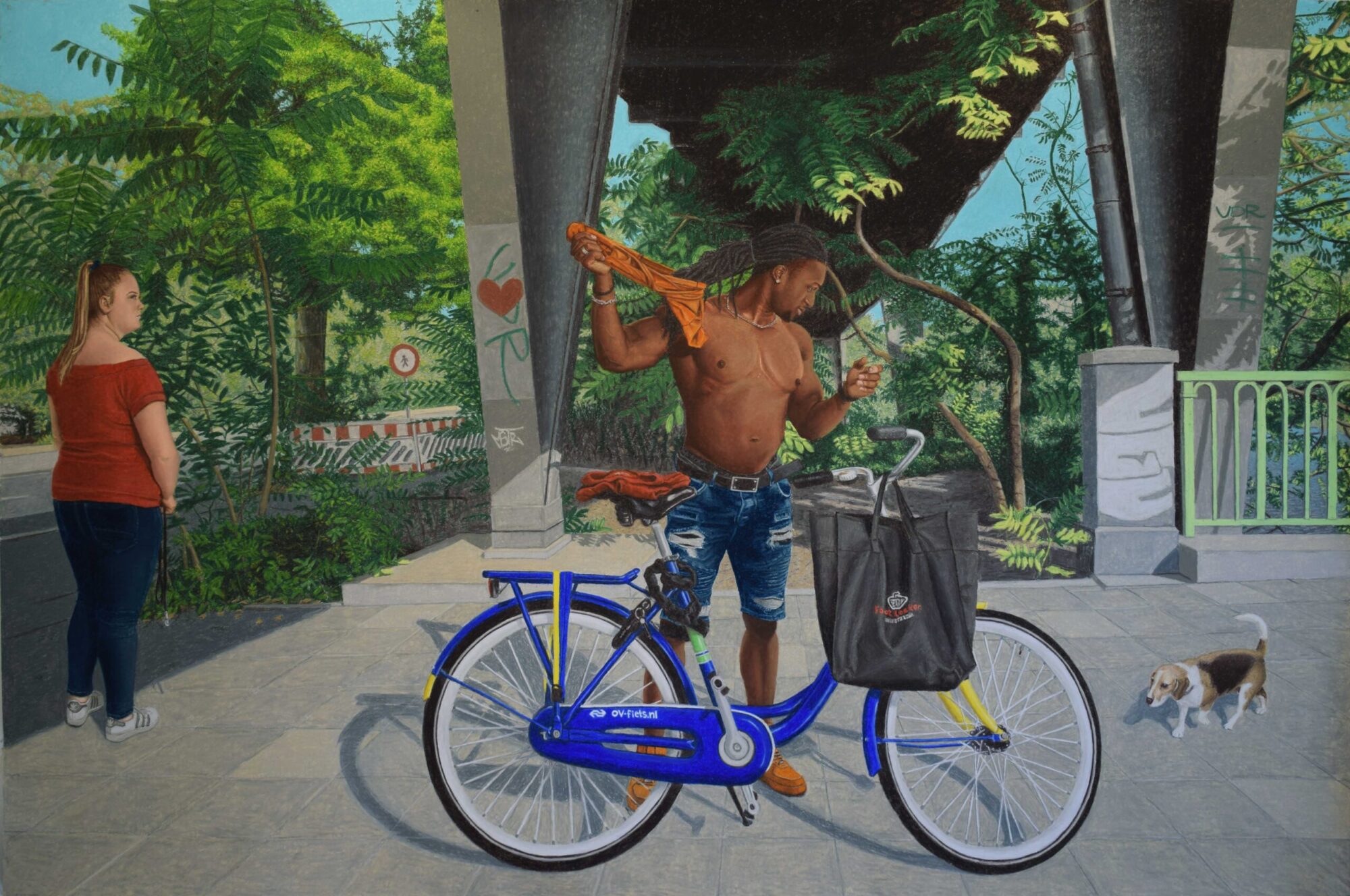By Anouk Gielen
Introduction
King’s Day, arguably one of the few holidays in which the Dutch proudly showcase their national identity (Klep 145), consists of many different traditions, almost rituals, that differ among a large spectrum. The holiday is different for children, parents, orangists, students and tourists, yet brought together through one iconic aspect : the people wear orange. Although King’s Day has only been a holiday and concept since 2013, when King Willem-Alexander was inaugurated, it has inherited the same traditions formerly celebrated on Queen’s Day. In 1885 the first Princesses Day was organised in order to celebrate the birthday of then princess Wilhelmina. Later, when Wilhelmina became Queen the name changed to Queen’s Day, celebrated on her birthday August 31st. When Juliana took over the throne from her mother Wilhelmina in 1948, the day then moved to her birthday, April 30th. In the post-war era, the day grew from a normal working day into a national holiday. When Beatrix was inaugurated, she decided to keep the 30th of April as Queen’s Day, as a tribute to her mother. However, when King Willem-Alexander was inaugurated in 2013, he decided to move the holiday to his own birthday, three days earlier than his grandmother’s: April 27th. Now, for the first time ever, the Dutch celebrate King’s Day instead of Queen’s Day.

The national holiday of King’s Day brings together many traditions. From an official banquet at the royal palace with a waving queen to a yearly tour by the royals. For children and parents, the day consists of the flea market and old dutch games. For students, King’s night, festivals and beer make the day memorable. For others, watching the tour of the royal family on television and eating a tompoes is important. The traditions of King’s Day not only differ in activity, but also touch upon different stereotypes of the Dutch. In this essay, I will argue that the paradox in Dutch culture, which has led to stereotypes of the Dutch as both a provincial and a liberal people, is brought to the fore in the celebrations of King’s Day. I will do so by first discussing the paradox within Dutch stereotypes of provincial and liberal. Then, I will examine what the iconic traditions of King’s Day are, focusing on the most popular ways of celebrating the holiday, namely watching the royal tour on television, the flea market and the alcohol parties. I will conclude by showing to what extent these different celebrations of King’s Day fit into the paradox of Dutch stereotypes.
